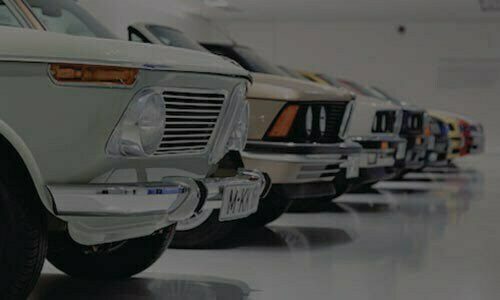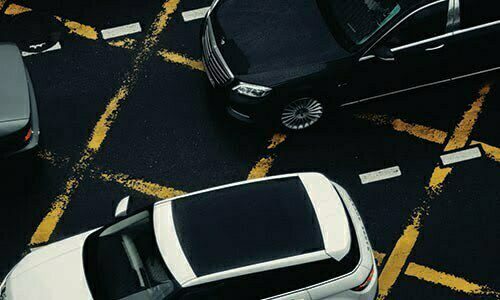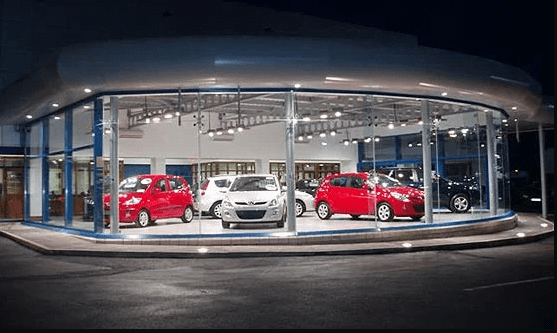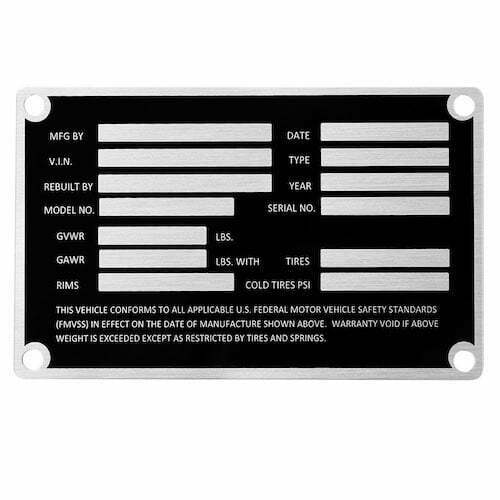23 important Things You Need To Know about buying and selling on ebay motors
Wondering About using eBay Motors? Here’s The Ultimate eBay Motors Guide
GAUK Motors Publish Ground-Breaking eBay Motors Guide
Here’s everything you need to know about buying and selling cars on eBay Motors … Read On!
If you’re looking to buy or sell a vehicle online at eBay Motors the good news is that there’s a thriving scene out there.
What do I need to know about buying and selling on the eBay Motors platform?
eBay Motors Cars and eBay Motors Motorcycles is the world’s biggest automotive online marketplace selling cars and motorbikes. Thousand vehicles a week go through eBay Motors UK and eBay motors USA. with a wide selection of both OEM and aftermarket parts.
Vehicles are sold in both auction and classifieds format. eBay is where the traders, car buyers and sellers go and if you do your homework and can keep a cool head under pressure, eBay Motors can be a thoroughly enjoyable experience. If you’re new to the world of online car auctions, you may be wondering just what you need in order to get into this marketplace.
Here’s all the information you need:

6 Top Tips to selling your car on eBay motors
There is an increasing trend for people to sell their car on eBay motors, rather than going the traditional route of putting an ad in a trade magazine.
Unlike a newspaper or magazine advert there is much more control over how your advert is displayed on eBay cars for sale by owner and there is the ability to display more detailed information about the vehicle.
To achieve the best price when selling on eBay look at these profitable tips:
Start your listing by asking yourself: “What do I like to see in an advert?”
1 Pictures – Buyers love pictures so they can get an idea of what your car is like. Before you start taking pictures make sure you give the car a good clean, inside and out, so it is looking it’s best. Then take around 20 exterior and interior shots. Cars always look best in the sunshine so look out for the good weather. Once you have your pictures choose the best 10-12.
2 Protect your Data: To avoid car cloning, blank your number plate out on the images you display on the auction. Most image manipulation software will have a blur or pixelate feature which is useful for this purpose.
3 Be honest: There is no gain to be made from describing your car as something it is not. If the auction winner comes to collect the vehicle and discovers they have been misled, they will simply walk away. If you car has known problems, detail them in the description. A lot of buyers on eBay are in the motor trade and take any problems into account when bidding.
4 Low bid price attracts interest: eBay is such a busy site these days that you can take the risk of starting bidding at 1p safe in the knowledge that your car will usually achieve its market price. For piece of mind a reserve can be set but a 1p no reserve auction always attracts more interest from bidders.
5 Answer questions: Once the auction is live you’ll start getting questions from existing and potential bidders. Be sure to answer these questions promptly or bidders interest might switch to another vehicle.
6 Prepare your documentation: Any service history is a bonus but the most important document to have is the V5 logbook. Without this, you cannot sell your vehicle legally and no purchase will pay for a vehicle that does not have a logbook.
CHECK OUT THE GAUK MOTORS EBAY MOTORS BUYERS GUIDE
How To Avoid A Disaster When Buying Your Next Car On eBay:
- Ringers – Cars with a new identity
- Cut and Shut – Cars that are actually two different vehicles welded together
- Clockers – Cars that have traveled many more miles than is recorded on the dashboard
- Clones – Cars that carry the copied licence plates of a similar car
- Accident Damaged – Cars that have been in bad accident then ‘bodged’ and resold
- Death Traps – There are many criminals out there willing to put YOUR life at risk for a quick buck!!!
- Ex-Public Service Vehicles – Cars and vans that were once, Taxis, Ambulances, Police cars… and disguised. Believe us, they don’t make good second hand cars
- …AND MUCH, MUCH MORE
This report is about redressing the balance of power
If they want to fight dirty then you have two choices:
- Lay down and take it.
- Fight them on their terms.
It’s up to you!!!

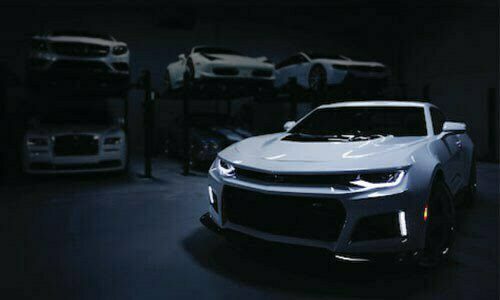
MORE VEHICLES
GAUK has developed powerful aggregation software that is monitored by real, live humans and only sources clean data.
AUCTIONS
Search ALL vehicles coming up for auction at the country’s leading sale rooms.
CLASSIFIEDS
Each day we gather up-to-the-minute information from multiple car classifieds websites across the internet
DEALERS
Search, save and compare car dealer vehicles across the entire UK.
Buying a Car on eBay Motors. Your Rights and What Steps You Can Take if You Have a Problem.
Car Crime Prevention, Police Update on Buying a Used Car on eBay Motors
Buying a Car
If you are about to buy, or are thinking of buying a car, there are some practical things that you need to look out for. Be careful if you are buying a second-hand car. Do not buy one that could be stolen or be a likely target for thieves.
Always:
- Ask to see proof of the seller’s identity and address – an official letter or driving licence, for example.
- Make sure the car’s VIN (vehicle identification number) matches that on the registration document.
Never:
- Let the seller bring the car to you, as you may need to confirm their address details.
- Buy a car without the registration document.
Check it out
- If in doubt, ask the AA, RAC or another reputable organisation to inspect the car before agreeing to buy.
- The vehicle identification number (VIN), formerly known as the chassis number, is a unique 17 character number issued to every vehicle by the manufacturer. The VIN could be:
- Stamped on the body chassis or frame.
- On a manufacturer’s VIN plate under the bonnet or fixed to the post between the front and rear doors.
- On an additional plate fixed securely to the top corner of the dashboard where it can easily be seen through the windscreen. This is called a visible VIN.
- When buying a car, always check that the VIN has not been tampered with and that it matches that on the registration document.
Buying a New Car
We advise you to consider the following security features for any new car that you purchase:
- Electronic engine immobilisation
- Locking wheel nuts
- Secure in-car entertainment
- Lockable fuel caps
- Central locking
- Security etching
- Deadlocks
- Alarms
Some systems may reduce your premium and you can find out more information from your insurer. We recommend that your car has as many of the above-mentioned security features as possible.
Think about fitting a vehicle tracking system if you are buying a particularly expensive car or one that might be attractive to thieves.
Your rights when buying a used car on eBay Motors
Caveat emptor – let the buyer beware
When you buy privately, you don’t have the same rights as you do when buying from a professional trader. It’s a case of ‘buyer beware’. That means it’s up to you, not the seller, to make sure the car is in good condition before you buy it.
The Sale of Goods Act applies to people who sell in the course of their normal business, but for private sales, the only part of the law that applies is that goods must be ‘as described’.
So to protect yourself, get the seller to give you written confirmation of the state of the car before you part with any money. They should at the very least agree to it being roadworthy. This written statement becomes a binding term in the agreement.
Has the vehicle been misdescribed?
The burden of proof is on you, not the seller, to show that the car has been misdescribed. If you can prove that it has been falsely described, you could ask for some or all of your money back. Make sure you keep any written description of the goods as evidence. Particularly the original advert.
Get in touch with Consumer Direct who can advise you. You could also take action through the courts.
Are you concerned the car may have a dodgy past?
You can check if the car was stolen or has a history of bad finance by doing a vehicle check through an organisation like the AA, the RAC or HPI.
The DVLA has information on their website that you can use to check if a car has been stolen.
If you’ve bought a car and it turns out to be stolen you could lose the vehicle and the money you paid for it. If this happens, you might be able to sue the seller for breach of contract. If someone tries to sell you something, it is an implied term of the contract that they have the title to the goods in the first place.
Do you have the seller’s address and phone number? If not, you’ll have a lot of trouble getting any redress. If it is stolen and you can get hold of the person who sold you the car, you could take them to court to get your money back.
If the person selling you the car still owes hire purchase money on it at the time that you buy it, the hire purchase company own the car and can ask you to give it back to them.
However, you can keep the car if you can prove that you genuinely didn’t know that there was any hire-purchase money owing when you bought it. Make the seller give you a signed and dated receipt with the make and registration number of the car on it and saying that there isn’t any HP money owing on the car.
Further Information
For security advice call the National Vehicle Security Helpline, or speak to your local police Crime Prevention Officer.
For information about vehicle inspections call the AA or the RAC
To check the status of a second-hand vehicle, call Equifax HPI
10 Ways to Avoid Online Second Hand Car Scams
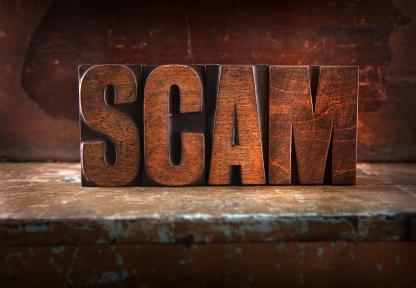
It’s easy to buy and sell cars online.
However, there are a growing number of criminals who target online used car buyers and sellers on eBay Motors.
Even though the vast majority of online trading is safe and legitimate it is important to beware of the common pitfalls that trip up unsuspecting consumers.
In recent years there has been a rise in the number of ‘virtual car’ scams, where a seller will advertise a car, claiming it is out of the country but located with a shipping company ready to import to the UK.
This means that the buyer will have to hand over the cash without even seeing the vehicle. Unfortunately, once the money is handed over, the car and the seller are never seen or heard of again.
Before you buy a vehicle make sure you read our ten-step checklist to avoiding online scams.
1. When you are looking to buy a car make sure you use an online classified ad service that is a member of the Vehicle Safe Trading Advisory Group (VSTAG). The VSTAG were set up to combat vehicle related fraud and sites which are approved by them will have practices in place to protect buyers.
2. Never transfer money electronically to someone you don’t know.
3. Never pay upfront for delivery.
4. Conduct a vehicle check to ensure it is legitimate. Before you buy a used vehicle you can check its details to see if it’s been stolen, written off or has any finance outstanding against it. You can check online or by telephone using services from the Driver and Vehicle Licensing Agency (DVLA) and private vehicle check companies.
5. Never provide money in advance, no matter how convincing the seller is.
6. View the vehicle and consider investing in a professional inspection before buying.
7. Be wary of incredible bargains as there is likely to be a catch, i.e., a stolen vehicle.
8. Walk away if the seller cannot produce the vehicle registration documents, MOT and service history.
9. Make sure the seller is legitimate by meeting them at their home address and checking that the vehicle is registered on the V5 at that address.
10. And remember, if it seems too good to be true it usually is, walk away.
Things You Need To Know When Buying Used Cars on eBay Motors
Clocking is one of the biggest threats to used car buyers.
If you’ve never heard the term before, it’s when a crafty seller tinkers with the odometer to make it look as though a car has covered fewer miles, which increases its value.
What’s worse is that it’s almost impossible to spot, so you could be paying well over the odds for a car that’s a lot more tired than it looks.
A BBC ‘Watchdog’ investigation recently uncovered serial car clocker, Ashley Singh, who sold such cars from home via used car sales websites. Singh used fake identities and doctored service histories to keep buyers in the dark, and it was only when he bought a car from the ‘Watchdog’ team that he was discovered.
Journalists from the programme sold Singh a car with 128,000 miles on the clock for £2,300, but later found him selling the same vehicle for £6,000 with a claimed 47,000 on the clock.
With that in mind, it’s essential to be as knowledgeable as possible when you’re buying your next second-hand car. Our top six tips for spotting a potentially clocked vehicle will keep you in the know and dodgy dealers at bay.
1) Check the service history
It’s tempting to just skim through the service history when you get caught up in the excitement of buying a car – but don’t. Inspect every document thoroughly.
Not every car will have a full service history, but the more documents, the better. Look for stamps from a genuine dealer, as these are good signs that the work has been carried out by a professional – and you can trace each fix, MoT or service back to an individual garage.
2) Get an HPI check
Vehicle history specialist HPI reckons that one in 12 used cars has a mileage discrepancy, so it’s well worth shelling out the nominal cost for a comprehensive history check. Single HPI has a database of 135 million mileages. If you’re paying a four figure sum for your next car, £20 for peace of mind seems worth it.
3) Double check the mileage on collection
A common trick by cheeky fraudsters is to wind the mileage figure back to a lower level when the buyer first comes to view the car, then change it to its correct level shortly before the car is collected.
Make a note of the mileage – and the general condition of the rest of the car – during your first viewing. On the second visit, give it a quick once over to make sure everything matches before you hand over your cash.
4) Talk to the previous owner
If you’re buying the car from anyone other than a private seller then it’s worth contacting the previous owner. Their details can be found on the front page of the vehicle’s logbook – write them down and contact the last owner before you buy.
See if what the previous owner says matches the service history. They’re not likely to know everything off by heart, but if there are any glaring differences then it could be time to walk away.
5) Look for wear and tear
Check out our essential spotting a clocked car guide Clocked cars are hard to spot, but if a vehicle has covered a lot more miles than the seller claims, then there are telltale signs. Worn steering wheels and seats and damaged or loose interior trim suggest that the car has been used heavily.
Look for new but easily replaceable parts too, like wiper blades hub caps. This could mean that the seller has shelled out a small amount to get the car looking tidy, when in fact, it’s not up to scratch.
6) Trust your judgement
Check out the front page of the logbook. If the previous owner was a fleet or business then the mileage will usually be quite high. If the car was for business use only and it has only covered 6,000 miles in a year then you have reason to be wary. Stay savvy and keep your wits about you and you have far less chance of buying a dud.
What to do if Your Vehicle Has Been Cloned
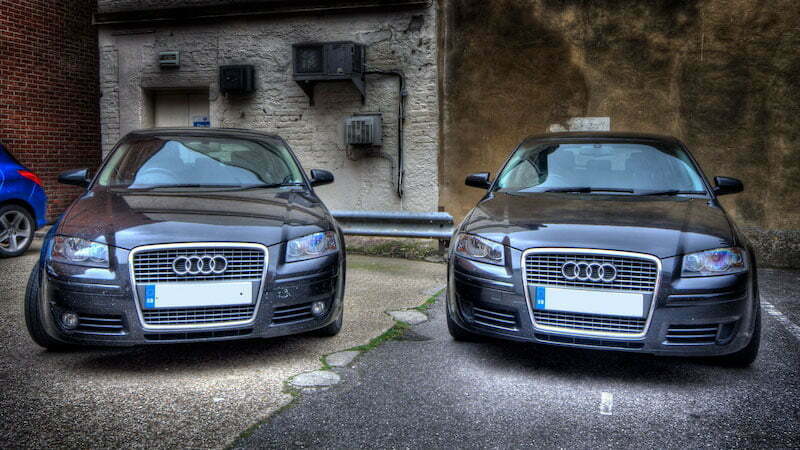
If you are being contacted about fines or charges for which you are not responsible because someone else is using your registration mark, it is possible that your vehicle has been cloned.
Cloning involves the copying of the identity of a similar (non-stolen) vehicle already on the road. Criminals find an exact match of the car they have stolen, they then copy the identity of the legitimate vehicle, therefore making it look legal based on false number plates being fitted.
If you suspect your vehicle has been cloned, the following points will help you avoid becoming a victim of further crime.
What you need to do
- return any fines or correspondence to the issuing authorities providing them with any documentary evidence you have to prove your case
- write to the Driver and Vehicle Licensing Agency (DVLA), Swansea, SA99 1ZA or fax them on 01792 783 083, they will record your correspondence on the vehicle record for future reference
- contact the police, it is a matter for them to trace and prosecute the culprit to prevent this illegal activity from continuing
What happens next
DVLA will give consideration to issuing a new registration mark on request if satisfied that there is a genuine case of vehicle cloning and that there is a recurring problem. Acceptable evidence might include applications to register and licence a vehicle from someone other than the registered keeper.
What is being done to stop cloning?
As part of the government’s drive to reduce vehicle related crime, DVLA has implemented measures to seek to address the problem.
The introduction of the Registered Number Plate Supplier (RNPS) scheme means that:
- all current number plate suppliers in the United Kingdom must register with DVLA
- registered suppliers must keep a record of every sale
- documentary evidence of the customer’s name and address and entitlement to the registration mark requested, must be obtained
- A team of DVLA enforcement officers works closely with police and trading standards colleagues to help ensure number plate suppliers adhere to the rules.
- Intelligence led enforcement action is taken against those in breach of the requirements, including prosecution, fines and removal from the number plate suppliers register.
This has introduced much greater control over the supply of number plates.
To help tackle the theft of number plates, DVLA has led the development of an agreed voluntary standard for theft-resistant plates. Once these plates are detached from a vehicle they cannot be used again.
They are now available from a number of outlets. Please contact your local car dealer for further information.
Always reliable
“The GAUK Motors app has been a gift. I used to waste hours a day searching different sites and monitoring emails. Now I just set up a search and I’m done”


Joel Marchant
Car Dealer
Easy to use
“I used the free service for a while and it wasn’t until I upgraded that I realised just what a fantastic app you’ve built. I’m a customer for life.”
Great Company
“Hey GAUK. Awesome app. I use it on a daily basis and just bought my first classic car … an EType Jag of all things”
Well done!
“I never usually write reviews but after watching GAUK grow I just wanted to say well done and keep up the great work”


Jane Cavanah
Sales Assistant
Not what I expected!
“There a lot os sites out there promising great things. It was so refreshing to find that you guys actually delivered on all that marketing hype. Cool!”
Looking forward to it
“The GAUK Motors Newsletter is the only one I look forward to seeing drop into my inbox”
What they’re saying
The Best Experience
GAUK has consistently delivered quality information. Thousands of vehicles from hundreds of websites making your perfect ride … easier to find.

